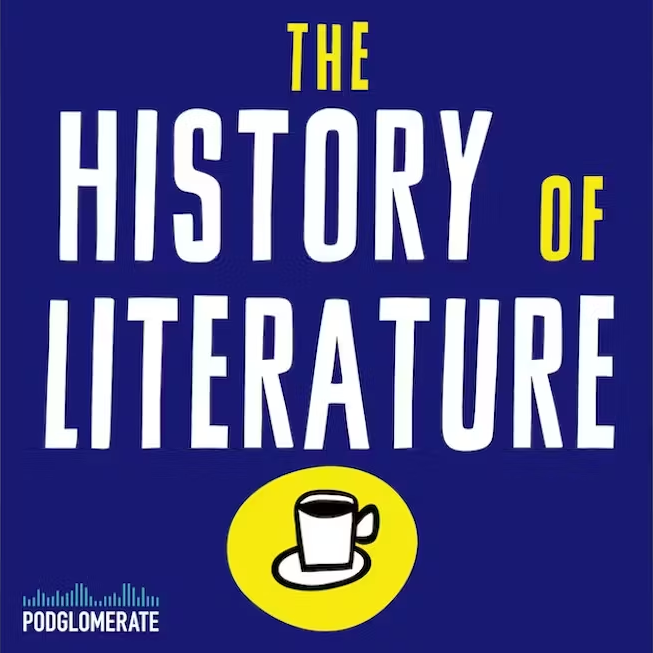Short Stories
-
The History of Literature #520 — “An Occurrence at Owl Creek Bridge” by Ambrose Bierce
Kurt Vonnegut Jr. called it, simply, the greatest American short story. In this episode, Jacke takes a look at Ambrose Bierce and his masterpiece, “An Occurrence at Owl Creek Bridge.” Help support the show at patreon.com/literature or historyofliterature.com/donate. The History of Literature Podcast is a member of Lit Hub Radio and the Podglomerate Network. Learn more at www.thepodglomerate.com/historyofliterature. Continue reading
-
The History of Literature #478 — The Diaries of Franz Kafka (with Ross Benjamin)
Kafka! The avatar of anxiety! He’s long been one of our favorites here at the History of Literature Podcast. In this episode, Jacke talks to translator Ross Benjamin about the new edition of The Diaries of Franz Kafka, published by Schocken Books, which includes some material available in English for the first time. “Readers will welcome… Continue reading
-
The History of Literature #473 — A Hemingway Short Story (with Mark Cirino)
Jacke is joined by Professor Mark Cirino, host of the One True Podcast and editor of One True Sentence: Writers & Readers on Hemingway’s Art, for a discussion of Hemingway’s classic short story about World War I and recovery in an Italian hospital, “In Another Country.” (If you haven’t read the story in a while don’t worry – we… Continue reading
-
The History of Literature #470 — Two Christmas Days – A Holiday Story by Ida B. Wells
Legendary anti-lynching crusader and civil rights activist Ida B. Wells (1862-1931) is best known for her diligent research and brave and compelling journalism. But she was also a feature writer for both black-owned and white-owned newspapers, and her talents were not just limited to nonfiction. In this episode, Jacke reads and discusses a rare example… Continue reading
-
The History of Literature #468 — Chekhov Becomes Chekhov (with Bob Blaisdell)
In 1886, the twenty-six-year-old Anton Chekhov was practicing medicine, supporting his family, falling in and out love, writing pieces for newspapers at a furious pace – and gradually becoming one of the greatest short story writers the world has ever seen. In this episode, Jacke talks to Bob Blaisdell, author of Chekhov Becomes Chekhov: The Emergence… Continue reading
-
The History of Literature #460 — Rabindranath Tagore
In this episode, Jacke takes a look at the life and works of the legendary Bengali writer Rabindranath Tagore (1861-1941). Central to what became known as the Bengali Renaissance, Tagore’s poetry, short stories, songs, essays, paintings, and plays earned Tagore widespread praise from Indians and non-Indians alike. Among many other awards and accolades, in 1913… Continue reading
-
The History of Literature #454 — Emma’s Pick – A Victorian Ghost Story
Happy Halloween! In this episode, producer Emma selects a classic Victorian ghost story for Jacke to read: “Eveline’s Visitant” by the publishing powerhouse Mary Elizabeth Braddon. Additional listening suggestions: Help support the show at patreon.com/literature or historyofliterature.com/shop. The History of Literature Podcast is a member of Lit Hub Radio and the Podglomerate Network. Learn more at www.thepodglomerate.com/historyofliterature. Continue reading
-
The History of Literature #450 — The Tell-Tale Heart by Edgar Allan Poe
It’s October! Time for dead leaves, spooky twilight, and little goblins running around in search of candy. And of course, the OG Mr. October, Edgar Allan Poe. In this episode, Jacke (finally!) accommodates the voluminous requests for an episode on Poe’s classic story of guilt, madness, and horror, “The Tell-Tale Heart.” Additional listening suggestions: Help… Continue reading
-
The History of Literature #440 — Emma’s Pick – “A Pair of Silk Stockings” by Kate Chopin
Today, Kate Chopin (1851-1904) might be best known for her groundbreaking feminist novel The Awakening (1899). But she was also an accomplished short story writer, publishing in national magazines like Atlantic Monthly and Vogue. In this episode, Jacke provides an annotated reading of producer Emma’s latest pick: “A Pair of Silk Stockings” (1897) Chopin’s story of a down-on-her-luck woman who… Continue reading
-
The History of Literature #433 – Emma’s Pick – “To Build a Fire” by Jack London
Is this the greatest man vs. nature story ever? Hard to say. But it just might be the purest. Kicking off a new HOL feature, producer Emma chooses a short story for Jacke to read and discuss – Jack London’s classic “To Build a Fire.”. Get somewhere warm and let your mind drift to the snowy… Continue reading
